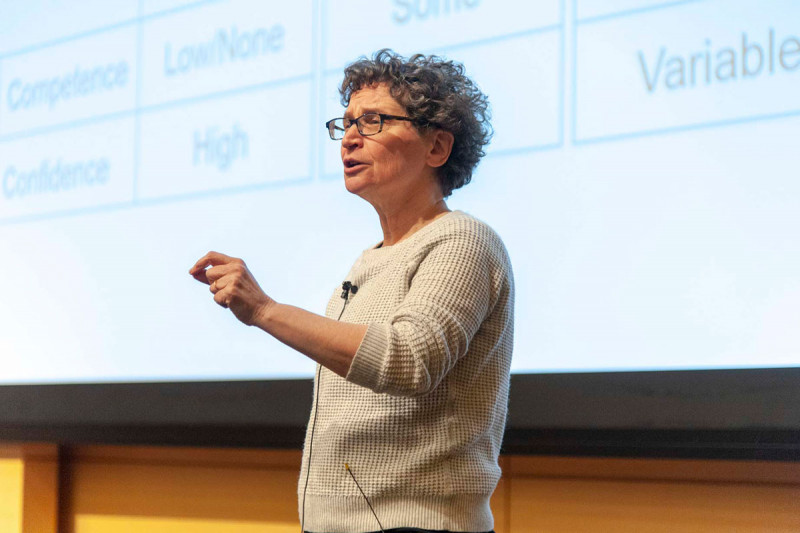
Game Changers are institution builders. They revolutionize organizational culture, cultivate and harness creative ideas, and uphold equity, diversity, and inclusion.
One of the first things you may notice about Dr. Sharon L. Milgram upon meeting her is her incredible energy. She is a person who is constantly thinking about ways to make life better for those around her. That energy and drive for improvement comes across as passion for the trainees she serves at the National Institutes of Health (NIH). As the Director of the Office of Intramural Training & Education, which is responsible for the centralized oversight of training and policies that govern NIH trainees, she has expertise in the development and delivery of professional development for trainees interested in biomedical, behavioral, and social science research. From high school students to postdocs, Dr. Milgram strives to make the training experience meaningful, safe, and enjoyable for all trainees.
In her role as a director, she has led a team that works diligently to bring increased diversity to NIH. Early in her time at NIH, she began speaking with trainees and they would sometimes describe how being different made some of them feel uncomfortable at NIH. With a “hope that each participant will become an ally for diversity and social justice,” Dr. Milgram not only brought in a diversity expert to encourage NIH trainees and senior staff/faculty to celebrate difference and diversity through a six week diversity course but also sponsored and helped develop “affinity” groups (including the LGBT- Friend and Fellows group ) to help make trainees feel more at ease.
Over the years, she has interacted with thousands of NIH trainees (and trainees around the country) and through those interactions, she realized that, although trainees were receiving world-class training in biomedical research at NIH, the stress of research coupled with striving to reach career goals sometimes came with a cost to their well-being. She began developing a wellness program at OITE that would complement the professional development and mentoring for which her office is known. She was most interested in how to help NIH trainees be resilient in the face of whatever adversities they may face in the moment and into the future.
Do you have a story idea for us? Do you want to submit a guest blog? If it's about equity, diversity, or inclusion, please submit to edi.stories@nih.gov.
For news, updates, and videos, follow or subscribe to EDI on: Twitter, Instagram, Blog, YouTube.







